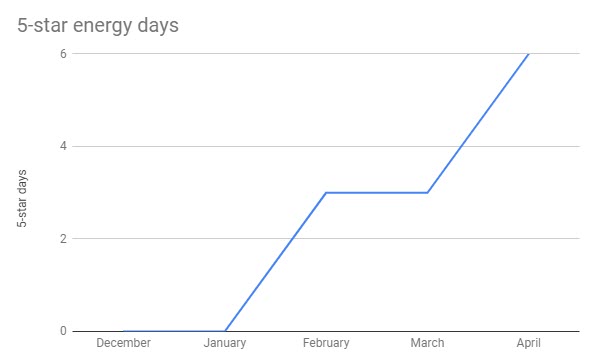Introduction
I am a 40-something male with unusual fatigue. I fell asleep during a Metallica concert in college. My 76-year old father sleeps 20 hours per day, and my 11-year old son is also exhibiting unusual fatigue. Doctors have been unable to help. Blood tests have revealed nothing unusual. I drank so much caffeine, I started having heart arrhythmias 40+ times per day.
Out of desperation, I’ve begun to track every conceivable factor in energy production and fatigue that I can find and experiment with them. I am new to QS and eagerly looking forward to learning from the community.
Questioning
Since energy and fatigue is such a huge subject, I’m taking a systems-based approach to the body. From my research, it seems like the body’s energy is derived and/or affected by eight main subsystems:
- Breath
- Sleep
- Hydration
- Diet
- Movement
- Mood
- Biochemicals
- Environment
Each subsystem seems to have stressors (like alcohol) and requirements (like sleep or food).
I’m approaching this project by reading the top books in each area, seeing which sources they reference and reading those, documenting stressors and requirements, trying to eliminate the stressors, trying to build up the requirements, and documenting the results.
Observing
I have been tracking over 30 different factors in the above 8 areas over the past 6 months.
- energy (morning, noon, and night) on a scale of 1-5 (5 being the highest)
- mood (morning, noon, and night) on a scale of 1-5 (5 being the highest)
- sleep (total, deep, REM, and Garmin sleep score)
- calories (breakfast, lunch, dinner, snack, total)
- caffeine (morning, lunch) (after a couple months, I eliminated caffeine in the afternoon)
- movement (steps, aerobic calories, minutes of anaerobic exercise)
- water (Morning, noon, and night in ounces)
…and more
For the full list, I’m keeping the data in a Google spreadsheet here:
Consolidating
Since neither the doctors nor I know what is affecting my family’s energy, I am casting a wide net. Here are the experiments I am currently tracking:
Breathing Experiments
- Slow breaths
- Nasal breaths while taking the stairs
- Nasal breaths while running
- Sleep tape
- Breathe right strips
- Saline rinse for allergies
Sleep Experiments
- Sleep tape
- Breathe right strips
- Cooler bedroom temperatures
- Blackout curtains
- Air filter
- Humidifier with essential oils
- No caffeine 8 hours before bedtime
- No liquids after 5 PM
- No screens 1 hour before bedtime
- Low blue light LED light bulbs
- Blue light blocking glasses
Hydration Experiments
- Humidifier
- Lower caffeine
- Sleep tape
- Smoothies
- More fruits and vegetables
- MCT oil
- Massage gun
- Stretching daily
- Drinking 32 oz of water with electrolytes before coffee
Reasoning
With my crude 1-5 scale, I have begun to refer to my perfect days - the days when I have a 5 energy morning, noon, and night, and I have a 5 mood morning, noon, and night - as my 5-star days.
When I started this experiment in December, I had no 5-star days. Last month, I had six. My efforts seem to be working, but I know I have a lot of room for improvement.

I am tracking this experiment on my blog at TheEnergyBook.com.
Next Steps and Questions for the QS Community
Next I will be reading the energy/fatigue research on:
4. Diet - paleo, intermittent fasting, calorie restriction, affect of carbs on energy/insulin
5. Movement - HIIT, cardio, anaerobic, moving every 15 minutes, why the body needs movement
6. Mood - mood has the highest correlation with my energy currently. FASCINATED by this.
7. Biochemicals - caffeine, hormones (testosterone, adrenaline), supplements (B, D, COQ10)
8. Environment - seasonal affective disorder, red light therapy, polar plunges
Questions:
- Any recommended resources I should read on energy and fatigue?
- Any recommendations on how I’m structuring this experiment? (I know I’m taking on a lot)
- Any recommended machines for measuring energy? (I use a Garmin Fenix 6)
- Thank you for reading through all this!